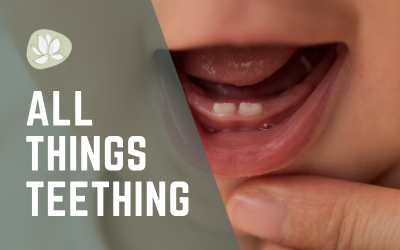Today I want to talk to my softies! Some of my favorite people are what we call Empaths. These are usually my Enneagram number 2’s, those who are naturally connecting helpers and fixers for any situation, no matter who it may be. The definition of empathy is the ability to understand and share the feelings of another, and being an empath takes that one step further. Empaths have to ability to truly sense and feel others’ emotions as if they are your own experience. In other words, you’re happy when someone you know is happy! But that also can mean if someone is feeling anger or guilt, you will feel that too. Unless these feelings are explained to you at a young age, you may not understand why you are feeling the things you are feeling. Most empaths will pick up on negative emotions and do whatever is in their power to try and make the other person happy or feel better. Since most people don’t even know that’s what they are doing, this leads to constantly being drained after social interactions, social anxiety, feeling unsafe in public, difficulty disconnecting from people, unhealthy trauma bonds, and nonexistent boundaries, amongst many others.
Another category I always see as empaths are children! Kids are naturally empathetic, seeing the world as beautiful and loving, sharing that with almost everyone they see. Due to mirror neurons, hours-old infants will show responsiveness to other infants in distress because they are hardwired to map the experiences of others in their brains. Over time through trauma, fear, brain development, and sometimes school, children are trained out of those kinder habits. For these reasons, it is crucial at a young age that we teach self-love, healthy emotional connections, and boundaries. As parents, the best thing you can do is model empathy and explain your emotions (both happy and sad, good and angry) as examples and reinforce positive affirmations as they begin to copy you. You must be honest when they ask what is wrong when something is. An easy line is, “I am sad/ angry/ confused/ etc. right now. You are correct; I’m upset. But it would be best if I was left to process this myself.” When this is done for empaths, they learn to trust their intuition and learn to separate their feelings from others around them.
Empaths also have a magical ability to make people feel heard, better, relieved, and happier. But it may be the opposite of all of that when they leave the interaction. And because empaths will do whatever they can to help and fix, you’ll notice that they can create many unhealthy boundaries to feel fulfilled in their purpose.
If you feel like this is you, I want you to take a deep breath because the following words may be hard for you to hear. It is NOT your job to make people feel better. You can hold space for someone’s emotions without taking on their pain. Let me teach you the steps I taught my children.
Step one is to balance and protect yourself. Some of my favorite ways are to use essential oils, stones, and EMF protection. The oils
White Angelica,
Valor, and
Release, are fantastic to start with as you learn how to navigate others’ feelings and discern their emotions vs. your emotions. Also, teaching yourself how to ask questions, such as “What’s going on with you right now? I’m sensing XYZ. Is that correct?” This question reinforces your feelings vs. their feelings. I have often learned that empaths who grew up in trauma homes would often be told nothing is wrong when asking the adults around them. So they learned not to trust their intuition. Stones that have calming effects are selenite, hematite, jade, and black tourmaline. These will help you remove negative energy from your mind and space, promote calmness and overall well-being, and reconnect you to the earth. I wear these in bracelets, necklaces, earrings, and in actual stones in my pockets. Since Empaths also seem more susceptible to EMFs, one of my new favorites is the
Harmoni Pendants, necklaces that protect from harmful EMF/HRVs while balancing your meridian line.
Finally, learning to hold space for people and their emotions is imperative. Don’t try to “take it away” or make them feel better. The way you do this is to listen without giving advice. Guard your personal space. I taught my children to put themselves in a golden bubble so that no one’s energy could touch them, they could see it or feel it, but it couldn’t affect them. Sometimes offering a visual is an excellent way for people to learn how to accomplish this mentally. Also, practice saying, “I am busy right now, but I could make time for you at XYZ,” or “I’m not in the right mental space for that right now, but what about tomorrow/ next week?” Always feel free to say no when someone comes to you, especially if they won’t respect your boundaries or you can’t manage your emotions around them. Learning No is a complete sentence is a powerful step for my empaths.
This blog is just skimming the surface of ways we can protect our sweet empath’s hearts. If you have any questions about starting this journey for you or your person,
let’s set up a consultation.




Recent Comments